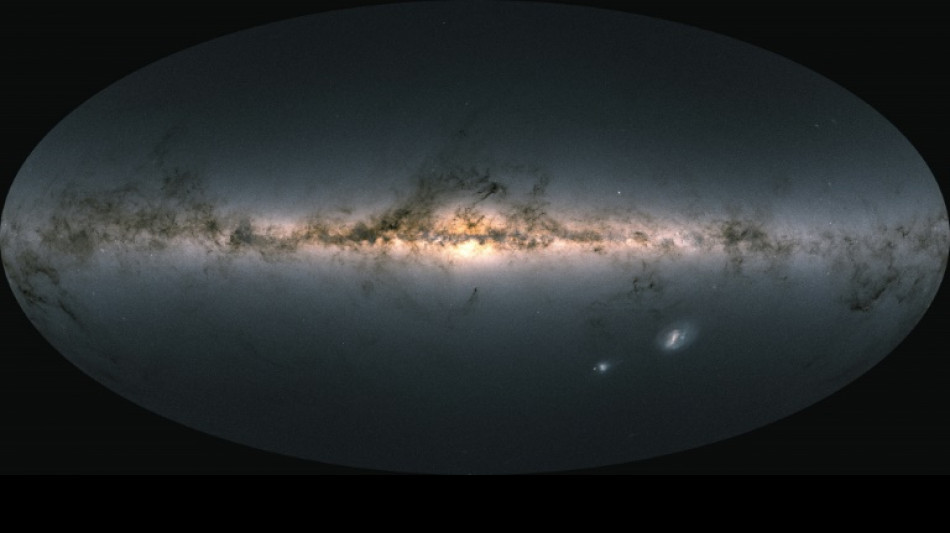
-
 Champions Chelsea finish WSL season unbeaten
Champions Chelsea finish WSL season unbeaten
-
At his former US university, the new pope is just 'Bob'

-
 Ukraine allies set ultimatum to Russia for 30-day ceasefire
Ukraine allies set ultimatum to Russia for 30-day ceasefire
-
Deja vu in France as Marc Marquez beats brother Alex in MotoGP sprint

-
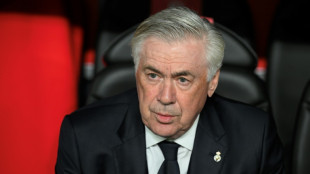 Alonso has 'every door open': Real Madrid's Ancelotti
Alonso has 'every door open': Real Madrid's Ancelotti
-
Swiatek's Rome title defence ends early as Sinner set for hero's return
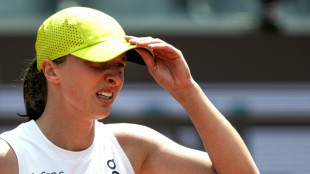
-
 Marc Marquez wins French MotoGP sprint race
Marc Marquez wins French MotoGP sprint race
-
Swiatek's Italian Open title defence ended early by Collins
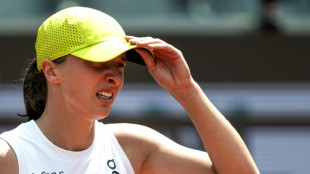
-
 Uproar as S. Korea conservatives switch presidential candidate
Uproar as S. Korea conservatives switch presidential candidate
-
Vollering retains women's Vuelta title in style

-
 India and Pakistan agree to ceasefire after days of attacks
India and Pakistan agree to ceasefire after days of attacks
-
Pope Leo XIV says choice of name reflects social commitment
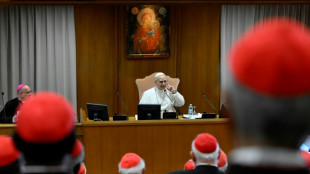
-
 Ecuador declares national mourning for 11 troops killed by guerrillas
Ecuador declares national mourning for 11 troops killed by guerrillas
-
Thousands in Spain confined indoors for hours by toxic fumes

-
 Postecoglou 'hopeful' Son will return for Spurs against Palace
Postecoglou 'hopeful' Son will return for Spurs against Palace
-
Ukraine, Europe allies seek 30-day Russia truce starting Monday

-
 Flick wants 'dominant' Barca in vital Liga Clasico
Flick wants 'dominant' Barca in vital Liga Clasico
-
Panicked Indians flee Kashmir city on special train

-
 With papacy, Leo XIV inherits Vatican money troubles
With papacy, Leo XIV inherits Vatican money troubles
-
Quartararo pips Marquez brothers to pole at home French MotoGP

-
 Indian town mourns young twins killed in Pakistani shelling
Indian town mourns young twins killed in Pakistani shelling
-
'Pragmatic' approach could reap 'ambitious' UK-EU deal: Starmer

-
 Thousands confined indoors by toxic chlorine cloud in Spain
Thousands confined indoors by toxic chlorine cloud in Spain
-
US and China meet in bid to 'de-escalate' trade war

-
 European leaders in Kyiv for show of solidarity against Russia
European leaders in Kyiv for show of solidarity against Russia
-
India, Pakistan launch multiple attacks as US warns against 'miscalculation'

-
 Trump faces Mideast tensions on return to his 'happy place'
Trump faces Mideast tensions on return to his 'happy place'
-
Swords, orbs and fist-bumps: US presidents in Saudi

-
 US and China set for talks in bid to 'de-escalate' trade war
US and China set for talks in bid to 'de-escalate' trade war
-
China's consumption slide deepens as tariff war bites

-
 European leaders arrive in Kyiv in show of solidarity against Russia
European leaders arrive in Kyiv in show of solidarity against Russia
-
Gabon longs to cash in on sacred hallucinogenic remedy

-
 Mitchell magic as Cavs down Pacers, Nuggets silence Thunder in overtime
Mitchell magic as Cavs down Pacers, Nuggets silence Thunder in overtime
-
Pakistan retaliates against India in spiralling conflict

-
 S. Korea conservative party begins process to switch presidential candidate
S. Korea conservative party begins process to switch presidential candidate
-
Fijian Drua grieve death of Castres winger Raisuqe

-
 Pakistan says Indian missiles strike air bases as conflict spirals
Pakistan says Indian missiles strike air bases as conflict spirals
-
Spieth seeks career Slam as rivals ponder Rory Slam chances

-
 Major difference for McIlroy at PGA after winning Masters
Major difference for McIlroy at PGA after winning Masters
-
Top-ranked Korda shares LPGA Americas lead in repeat bid

-
 US and China prepare for trade talks as Trump floats tariff cut
US and China prepare for trade talks as Trump floats tariff cut
-
US projected to hit debt limit in August: Treasury chief
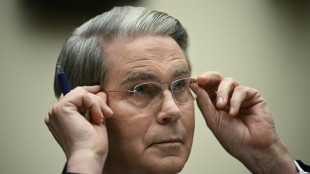
-
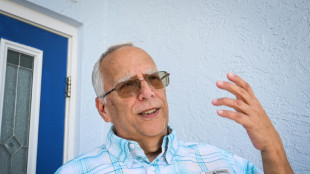 'You're gonna be the Pope,' Leo XIV's brother recalls telling him
'You're gonna be the Pope,' Leo XIV's brother recalls telling him
-
Guardiola says Man City season has been toughest in management

-
 'It's terrific': Chicago hails hometown hero Pope Leo XIV
'It's terrific': Chicago hails hometown hero Pope Leo XIV
-
Europe leaders head to Kyiv on unprecedented visit

-
 Pakistan warns won't de-escalate as conflict with India spirals
Pakistan warns won't de-escalate as conflict with India spirals
-
Stocks mixed as global markets eye US-China tariff talks

-
 Serbia's Vucic seeks low-price gas in Putin meeting
Serbia's Vucic seeks low-price gas in Putin meeting
-
German Holocaust survivor and witness-bearer Margot Friedlaender dies at 103


Space telescope Gaia sent into 'retirement' but legacy endures
Europe's Gaia space telescope was powered down and sent into "retirement" on Thursday after a decade revealing the secrets of the Milky Way, but its observations will fuel discoveries for decades to come.
Since launching in 2013, the telescope has been charting the positions, motion and properties of nearly two billion stars to create an unparalleled map of our home galaxy, according to the European Space Agency.
Gaia has been peering into the universe from a stable orbit 1.5 million kilometres (930,000 miles) from Earth called the second Lagrange point.
But the neighbourhood has been getting more crowded with the recent arrivals of the powerful James Webb and Euclid space telescopes.
To avoid causing any problems for the new kids on the block, the ESA's team on the ground ordered Gaia's engines to give a final push on Thursday that will take the spacecraft into a distant orbit around the Sun.
This "retirement orbit" will make sure the spacecraft will remain at least 10 million kilometres from Earth for the next century.
Over nearly 11 years, Gaia has uncovered evidence of massive galaxies slamming into each other, identified vast clusters of stars, helped discover new exoplanets and mapped millions of galaxies and blazing galactic monsters called quasars.
A study last year using Gaia data identified two streams of ancient stars at the Milky Way's heart thought to have formed around the galaxy's birth more than 12 billion years ago.
According to astronomers using Gaia, the Milky Way then swallowed other dwarf galaxies as it grew -- notably one called Gaia-Enceladus around 10 billion years ago.
Our home galaxy is still slowing devouring the Sagittarius dwarf galaxy, Gaia helped reveal.
The telescope also spotted more than 50 dwarf galaxies orbiting the Milky Way. Inside the galaxy, it tracked down 150,000 asteroids and detected several dozen black holes.
- Final goodbye -
On Thursday, ESA engineers in Germany disconnected -- one-by-one -- all the satellite's systems that allow it to survive the perils of space, such as radiation storms or being struck by tiny meteorites.
"The spacecraft are designed so that they cannot be killed -- it is very difficult to disconnect them," ESA operations engineer Tiago Nogueira told AFP.
The team at the European Space Operations Centre in the city of Darmstadt then shut down Gaia's instruments before corrupting its on-board software.
Finally, they said their last goodbye, deactivating the spacecraft's communication system and central computer.
But Gaia's mission will continue back on Earth.
Scientists are still sifting through the deluge of data the telescope sent back, and are expected to deliver its fourth catalogue of the stars in 2026.
The final catalogue -- which will encompass 10 and a half years of observations -- is expected around 2030.
Ultimately, Gaia's catalogue "will serve as a reference for astronomy for at least 30 to 40 years," Gaia engineer Jose Hernandez told AFP.
This means that even as Gaia distantly orbits the Sun in silence, what it observed will be feeding new discoveries for future generations.
Some of the astronomers who will make these breakthroughs using Gaia's data are "still in primary school," Hernandez said.
S.Leonhard--VB
